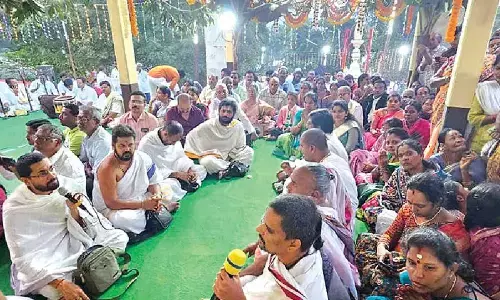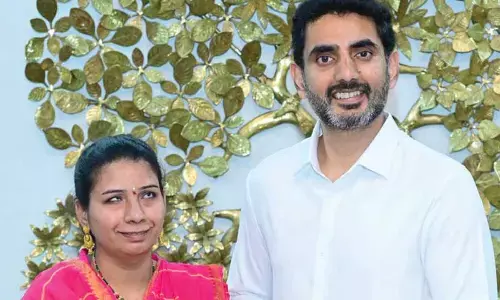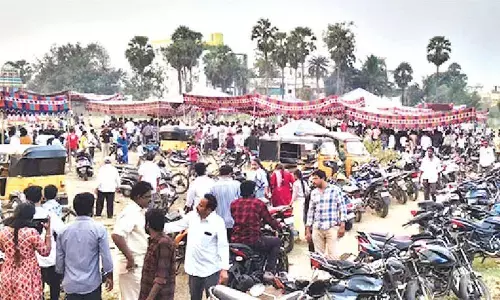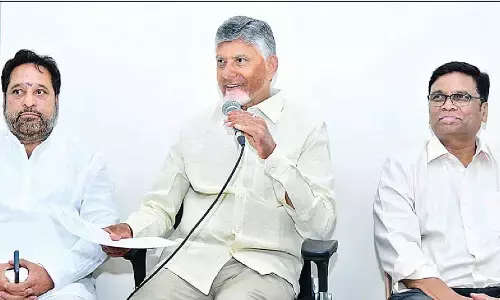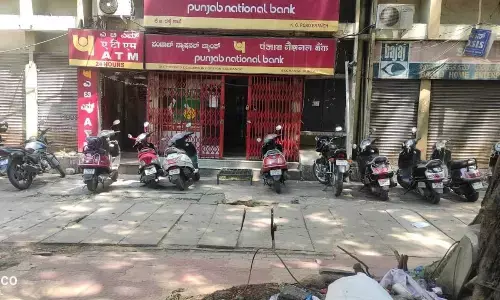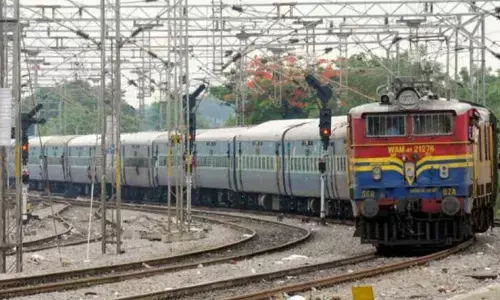Does I&B ministry still hold relevance?

Does I&B ministry still hold relevance? In 1985 – 86 I suggested to the then Prime Minister Rajiv Gandhi that it makes sense winding up of the Ministry of Information and Broadcasting.
.jpg) In 1985 – 86 I suggested to the then Prime Minister Rajiv Gandhi that it makes sense winding up of the Ministry of Information and Broadcasting. I repeated this suggestion with more convincing logic again to Prime Minister P V Narasimha Rao. More recently I pointed out how I & B’s campaigns tend to put leaders in the deceptivity. One PM did refer the idea further to the concerned Ministers. With the Minister for I & B vehemently opposing the idea for obvious reason, it could never be taken forward seriously. When Prasar Bharati was formed, about thirty years ago, that should have been appropriate time for winding up of this Ministry. Sushma Swaraj did not consider the idea even when she was holding both the portfolio of I & B and Communication but only for a short period.
In 1985 – 86 I suggested to the then Prime Minister Rajiv Gandhi that it makes sense winding up of the Ministry of Information and Broadcasting. I repeated this suggestion with more convincing logic again to Prime Minister P V Narasimha Rao. More recently I pointed out how I & B’s campaigns tend to put leaders in the deceptivity. One PM did refer the idea further to the concerned Ministers. With the Minister for I & B vehemently opposing the idea for obvious reason, it could never be taken forward seriously. When Prasar Bharati was formed, about thirty years ago, that should have been appropriate time for winding up of this Ministry. Sushma Swaraj did not consider the idea even when she was holding both the portfolio of I & B and Communication but only for a short period.
This idea however does not mean that the Government does not need help and dedicated support to put across its policies and programmes to a larger public. But that should be in such a way that the process of doing implies making citizens enlightened participants, active players and beneficiaries of governance. It should not be just for temporal advantage of a few and image (?) building purpose of some individuals in power. An analysis of work of various units of I & B during the three or four months prior to poll notification by the Election Commission tellingly brings out the kind of wired perspective those in power carry, not out of innocence but with greed. Then there were ample number of cases of politically motivated misuse of these units over the years.
Why did I pursue the idea and consider it high time now to wind up I & B Ministry? What was the logic that did not convince the PMs over so long? The suggestion was made based on three different streams of insights. First, my association with the Ministry of I & B as a senior advisor evaluating performance of its media units and later, after a gap of a decade, with the Ministry of Communication as national convenor of Social Audit Panel of that Ministry appraising its benefits along with a former Chief Justice and a just then retired Cabinet Secretary.
One conclusion I reached after studying more than a couple of national campaigns of the Government of the time conducted by the media units of the Ministry of I & B was that those units were not professionally equipped to creatively strategise the campaigns efficiently and credibly. Further, after discussions and appraisal, I concluded that a better option for the Government is to rely on professionals operating independently or in such an environment either as a Board or as Bureau.
A second source for the idea of dissolving the I & B Ministry was a study that I did then on Kingsway transmitters (two-thirds of them in Delhi and of neighborhood states were located in Kingsway and they also accounted then for most primary broadcasts of All India Radio. And yet hardly half of the time of broadcast hardware including transmitters, was being used and the rest of the time transmitters including in states like Himachal were remaining unused when in fact they could be used to expand the reach and network of telecom services. I tried in futile to make the two Ministers even to discuss the potential. Many have forgotten that initially there was only one service of broadcasting in the country when telecom was added, many from broadcasting had opted for telecom service. A similar dilemma arose more recently regarding internet and social media.
A third logic was emerging convergence era where synergies between broadcasting, telecom and information technologies were expected to go through rapid change for scaling up and to be able to offer many more value added services. I was one of the earliest to advocate convergence of communication technologies first from Social Audit Panel and later as elected President of Pacific Telecom Council of India.( PTC India Foundation). Even a Bill for expediting convergence of technologies was debated country wide but allowed to lapse in the Lok Sabha for the same inherent reason of "losing an empire "of one or other Minister.
Then there is a fallacy that has gone across political leadership. They think that control over media or presence in media is a better bet to win an election and gives certain advantage over rivals. CMS had debunked that notion some years ago. That is how Ministry of I & B continues its significance as one of the prized Ministry. Even in the case of state cabinets information portfolio is viewed as more important than what it is in fact. That is why winding up that Ministry sends significant mindset message for new politics of 2014. And even earns appreciation from many in the "media industry". And also goes well with transparency era.
Initially when press information bureau was formed, some fifty years ago, journalists from leading newspapers were inducted to ably offer media support to various government departments. After that PIB recruited mostly freshers from Central Information Service. But for several years there was no recruitment of new talent at all. Over all, the idea of winding up Information wing of that Ministry is a better option for more than one reason. In place, a functionally independent Board or Bureau is better proposition to ensure more credible media support to various government schemes and ongoing programes. When such a Information Board is formed, a more appropriate Ministry to place “broadcasting”, both radio and television and related functions, would be the Ministry of Communication and Information Technology. It is a logical initiative. Prasar Bharati, on the other, should be allowed to function on its own with a repositioned role.
From consideration of better efficiency, credible operations and to cope more promptly with emerging communication technologies, the idea of winding the Ministry of I & B is more appropriate even more now. That could save ruling party from getting into fallacy traps. This explanation should be good enough for the new government in New Delhi to go about with the two initiatives that this suggestion implies. Retrospectively there is no evidence to conclude that I & B Ministry or its units have positively helped the party in power to retain power or come back in an election.








